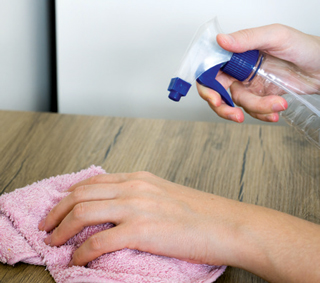
Nurses who regularly use bleach and other disinfectants on the job appear to have a higher risk of developing chronic obstructive pulmonary disease (COPD), according to research presented in September at the European Respiratory Society International Congress.
Harvard University and the French National Institute of Health and Medical Research (INSERM) investigators analyzed data from more than 55,000 nurses in the United States. They followed them from 2009 to 2017, evaluating their exposure to specific disinfectants, including bleach, hydrogen peroxide, alcohol, and glutaraldehyde, which is a strong disinfectant used to clean medical instruments.
During the study period, 663 nurses were diagnosed with COPD. The researchers found that nurses who performed tasks, such as cleaning surfaces, that involved once-weekly or more exposure to any of the disinfectants, had a 22% to 32% increased risk for developing COPD. The results were adjusted for factors that might affect the outcome, such as smoking, age and ethnicity, said Orianne Dumas, Ph.D., the study’s lead author.
“Our findings provide further evidence of the effects of exposure to disinfectants on respiratory problems, and highlight the urgency of integrating occupational health considerations into guidelines for cleaning and disinfection in healthcare settings,” she said.
From the November 01, 2017 Issue of McKnight's Long-Term Care News



